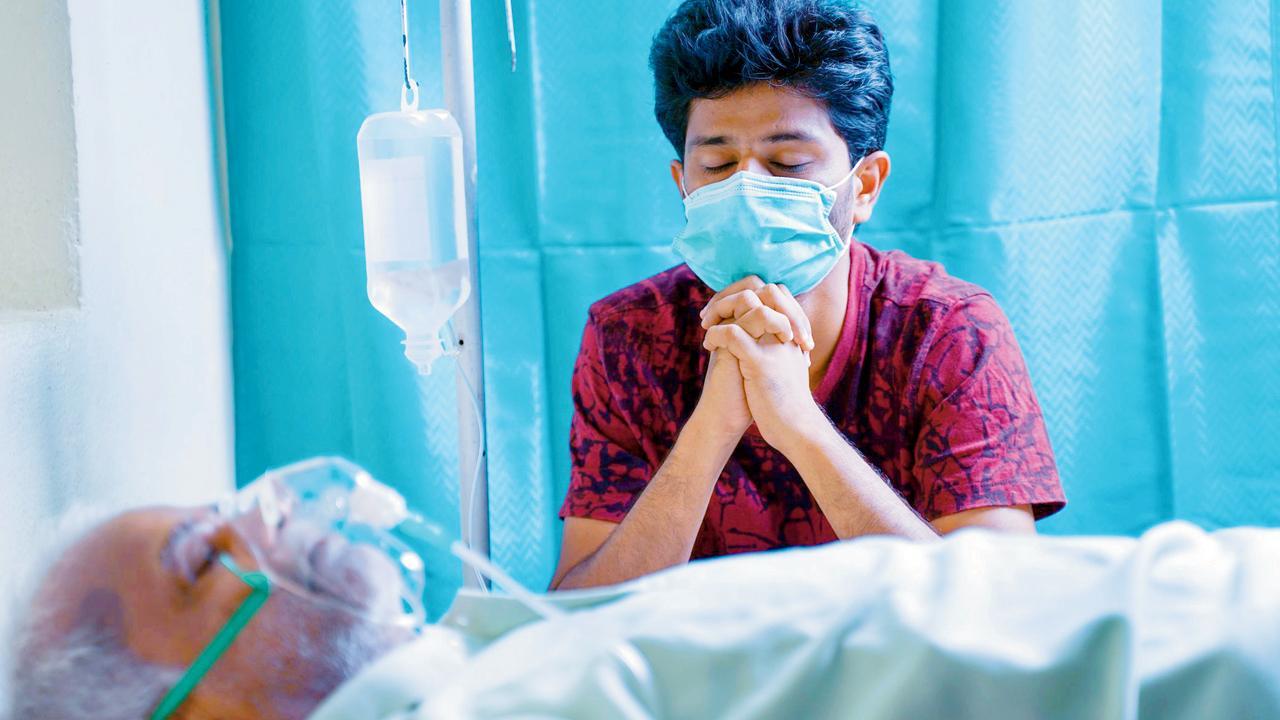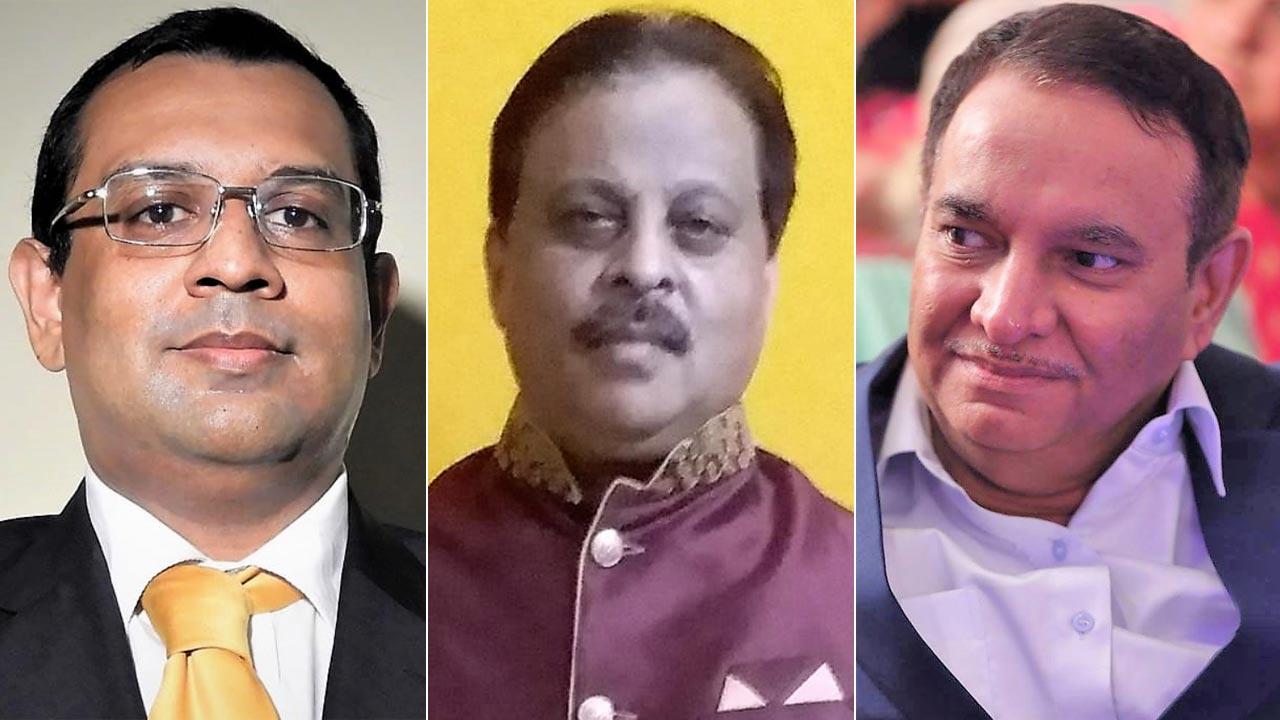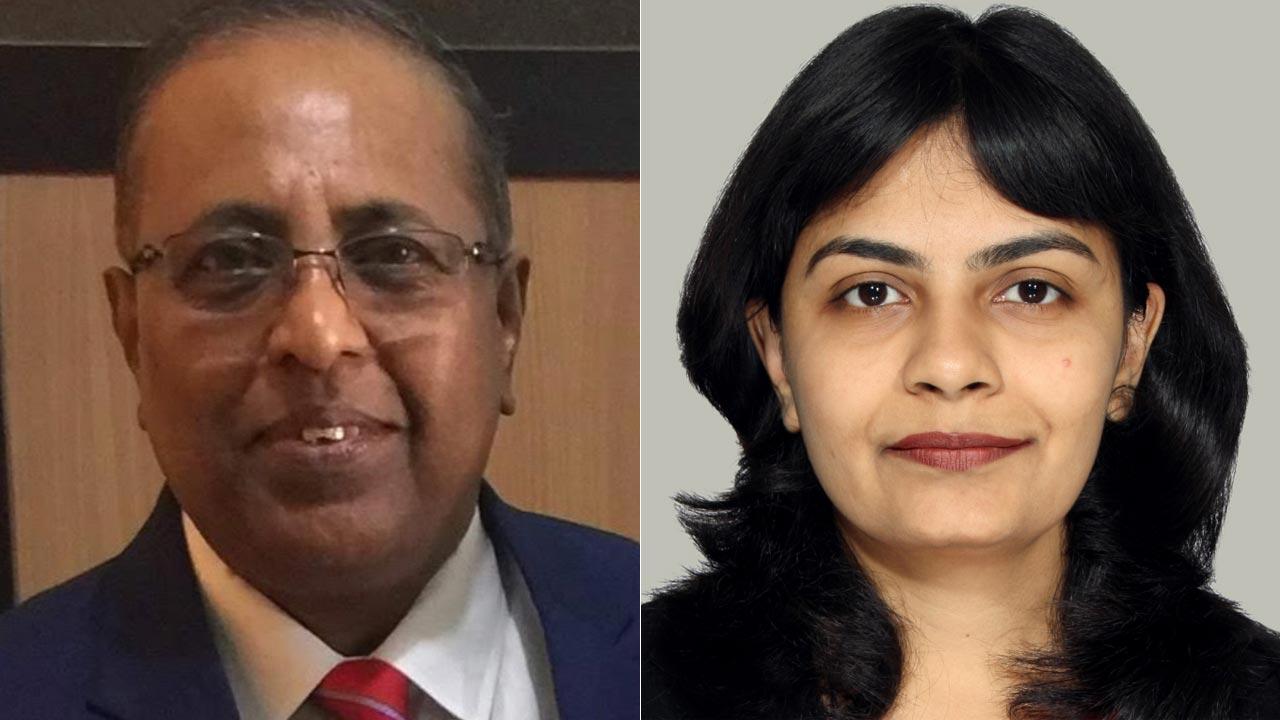‘Unfortunate that those with mental illness can’t issue advance directives’ , said an expert

Advance directives or living wills enable a person to state their choice of treatment beforehand or enable their caregivers to take the decision on their behalf. Representation pic
With every passing day, Maharashtra is not only missing its duty of safeguarding those with mental illnesses and their caregivers, but is also depriving them of Psychiatric Advance Directive (PAD)—a living will—by not implementing the much-needed Mental Healthcare Act, 2017 which has provisions for the same. Psychiatrists and legal experts termed it as unfortunate that the vulnerable groups cannot even decide for themselves and nominate their own PAD, apprehending future mental uncertainties.
ADVERTISEMENT
mid-day had in its reports on November 18 and 20 highlighted that while several states have started implementation of the Act, Maharashtra has not taken any steps yet while experts expressed concern as mental illnesses have seen an uptick during COVID, making such facilities a necessity.
What is advance directive
Solicitor Stuti Galiya said, “An advance directive is a written document by which any living person, not necessarily those living with mental illness, may state how they wish to be treated, or not, in situations where they have a limited capacity to make decisions regarding their care and treatment. It also enables a person to appoint a nominated representative who would be authorised to make decisions on their behalf, when the capacity of the person concerned who has given the authority becomes limited. The pandemic has brought with it immense uncertainty, fear and anxiety. The pandemic unravelled the need to improve the healthcare system. But healthcare isn’t limited to tending to the physical demands of a patient alone. It includes taking care of the well-being of the mental state as well, where factors such as remote working, financial stress, job loss concerns, anxiety about the pandemic, and other reasons are already accelerating anxiety levels.”
 Floyd Gracias, Godfrey Pimenta and Vinod Sampat
Floyd Gracias, Godfrey Pimenta and Vinod Sampat
Stuti added, “As we are dealing with novel situations in these trying times, the right to execute an advance medical directive becomes all the more important, as it is nothing but a step towards protection of aforesaid right by an individual, in event they become incompetent to take an informed decision, in particular stage of life. Advance medical directive enables them to start making advance preparations and give effect to the choices of treatment, they have decided during their conscious frame of mind, should they become incapacitated at any stage of their life in future.”
Dr Sanjay Kumavat, senior psychiatrist and former deputy director, Mental Health, Directorate of Health Services, Maharashtra government, explained, “A person needs to be certified by a mental health professional of having a mental health capacity, on the basis of which, guidelines are given by the Central Mental Health Authority under the new Mental Healthcare Act, 2017 for making the advance directive. The advance directive can be written on any piece of paper and needs to be uploaded by the caregiver on the official website of the District Mental Health Review Board [at present no such board exists in Maharashtra] or else the same can be preserved with the caregiver.”
 Nishit and Solicitor Stuti Galiya
Nishit and Solicitor Stuti Galiya
“The advance directive has to be produced to the mental health professional at the time of treatment or hospitalisation. However, if the same is not made available, the treating mental health professional is free to use his treatment protocol and guidelines. And if the patient gets back his mental capacity, then the advance directive seizes to be in operation,” said Dr Kumavat.
Its importance
“No doubt, the Mental Healthcare Act is a well-drafted instrument. However, it has been poorly implemented across various states in India. Despite the rules and regulations being issued at the time of the enforcement of the Act, several states and Union territories, including Maharashtra, are yet to draft rules and to establish regulatory bodies for the purpose of implementation of the Act. The result is that people of such states are deprived of the rights bestowed on them under the Act, which will result in their inability to file advance medical directives or appoint nominated representatives. Because of such inaction on the part of the states, High Courts of some states (such as Delhi and Karnataka) had to intervene. Even though judicial activism in recent years has contributed to the advancement of rights of people with mental illness by laying down a progressive jurisprudence, the responsibility of implementing and monitoring the Act to protect and promote the rights of persons with mental illness does not lie with the judiciary alone—it lies with the executive, too. Hence, it is important that the executive also show a proactive approach when it comes to implementation of such an important piece of legislation having social-economic impact,” Stuti concluded.
Speaking to mid-day, Floyd Gracias, counsel, Supreme Court, said, “In my opinion, the need for covering the concept of advance directives and living wills is a valid need of the hour and laws to govern the same and prevent misuse thereof is a necessity. The concept of a living will or basically what one may call advance directives is rather nascent in India, but it is rapidly catching on, considering the need and necessity in modern times. This becomes all the more imperative with several people living alone in their old age and not having any immediate family or relatives (living with them) to take decisions regarding their health and well-being.”
“At the outset, it is heartening to note that the Act widens the scope of caregivers, not only to family, but to any person who is nominated under Section 5 of the Act. It defines a caregiver as a person responsible for providing care. The 2017 Act is more encompassing than the 1987 Act and is wider in scope and definition. Section 5 of the Act allows for advance directives, subject to the provisions of Section 14 of the Act. However, the powers of the nominee/caregiver, contained in Section 14, read with the provisions contained in Chapter XII, is restricted only to medical care, emergency treatment, admission of a patient, discharge, transfer of facilities and other similar responsibilities,” said Floyd.
Should be extended beyond medical care
He added, “The Act and the law, however, is silent on advance directives regarding the administration of property, finances, business or estate of those with mentally illness. Any person, whether anticipating the onset of a mental illness or by way of abundant caution, should be entitled to make advance directives in case of such unfortunate event, whereby his/her mental reasoning is impaired and for matters connected therewith and incidental thereto. This should go beyond medical care and also to the administration of property and finances. This would enable the caregiver to use the finances/properties of the patient to his/her own advantage. It is disappointing when people have the funds to expend on treatment of their choice, but cannot do it for want of legal representation. An advance directive could simplify this process.”
He concluded, “The Act also specifies that a mentally ill person is entitled to rights and inter alia, right to equality and protection from discrimination, (section 21 of the Act). As I have mentioned earlier, a mentally ill person is also entitled to fundamental rights and Constitutional rights and is as much a citizen as any other person. In this context, the advance directives on appointment of a guardian/nominee to look after his/her non-medical affairs as also, advance directives as to how his/her property should be administered would help secure his/her rights. Living wills can also extend to the personal liberty (choice) of a person, in further terms of donation of organs, DNR, etc.”
"In February 2020, three years after the Mental Health Care Act, 2017 came into being, replacing the older Act of 1987, the Maharashtra government announced that the state rules were ready and were being examined by the legal department. However, the Mental Health Review Boards (MHRBs) could have been constituted and the state had announced that eight such MHRBs would be set up. In May this year, the state sought recruitment of 20 vacancies announced,” said Nishit Kumar, founder and managing director, Centre for Social Behaviour Change Communication.
“The 2017 Act provides for setting up of half-way homes, mental health institutions and practitioners (One practitioner per 100 population), MHRBs, District Mental Health programmes among others. As of now the reality is that the state rules for the Act have yet to be notified and MHRBs are yet to be set up. In short, there has been no real actions on the ground in Maharashtra, other than the announcements of recruitment for vacancies. Yes, we are told the state rules are done but unless they are notified, we really don’t have the implementation of the Act,” Nishit said.
“Prior to the COVID-19 pandemic, Maharashtra was one of the top states in suicides including farmer suicides and teenage suicides. Then the pandemic hit, and we have seen alarming levels of mental health issues. The state should have set up a task force to speed up the implementation of the Act. It is unclear what is holding this," Nishit concluded.
Must safeguard people
Advocate Godfrey Pimenta, founder-trustee of Watchdog Foundation, said, “Ideally the state government should implement the Mental Healthcare Act, 2017, which allows advance directives in order to empower people with mental illness and support a path to recovery. But in reality, the people are not aware of this special law. As such, there is a need to create enough awareness campaigns, seminars etc. to educate the people.”
Advocate Vinod Sampat, founder-president of co-operative societies residents association, said, “There is a special need to ensure that the assets of senior citizens as well as of persons with mental disorder are protected. They are weak in defending their rights. A law should be enacted whereby special care is taken for the assets of mentally weak persons so that their assets do not fall in wrong hands. Government should appoint impartial persons who should be available on a phone call so that people take their help.”
“Of course, all such things should be done in the presence of the family members. As far as possible, when a person with mentally illness is trying to execute a will, the same should be recorded on video as they can explain their submissions not only by writing it down but also by sign language. There have been ample instances where assets of old and mentally ill people are siphoned by persons with vested interest. It is common knowledge that senior citizens and those with mental illness are soft targets,” said Sampat.
“Unfortunately, in our country there is no speedy disposal of cases and this is one of the reasons why people compromise with the parties putting pressure. There are instances where forgery is done of the signatures of mentally ill people as well as of the elderly. Our legal system is such that it is very difficult to prove such acts. The biggest problem of our legal system is that no one has time, and by the time the matter comes up, many years have passed. This results in a situation whereby even if a person knows his rights, the legal team of the said person may advise him to settle the matter if possible. Justice delayed is justice denied, which is known to one and all. But there is no system of expeditious hearing for such soft targets,” Sampat said.
What is living will or advance directive
An advance directive or a living will is a written document by which any living person, not necessarily those living with mental illness, may state how they wish to be treated, or not, in situations where they have a limited capacity to make decisions.
This also enables a person to appoint a nominated representative who would be authorised to make decisions on their behalf, when the capacity of the person concerned becomes limited.
The Mental Healthcare Act, 2017 has a provision for Psychiatric Advance Directive to be issued by people living with or those fearing the onset of mental illness.
The advance directive can be written on a paper and needs to be uploaded by the caregiver on the official website of the District Mental Health Review Board, once they are functional, or else the same can be preserved with the caregiver.
 Subscribe today by clicking the link and stay updated with the latest news!" Click here!
Subscribe today by clicking the link and stay updated with the latest news!" Click here!







